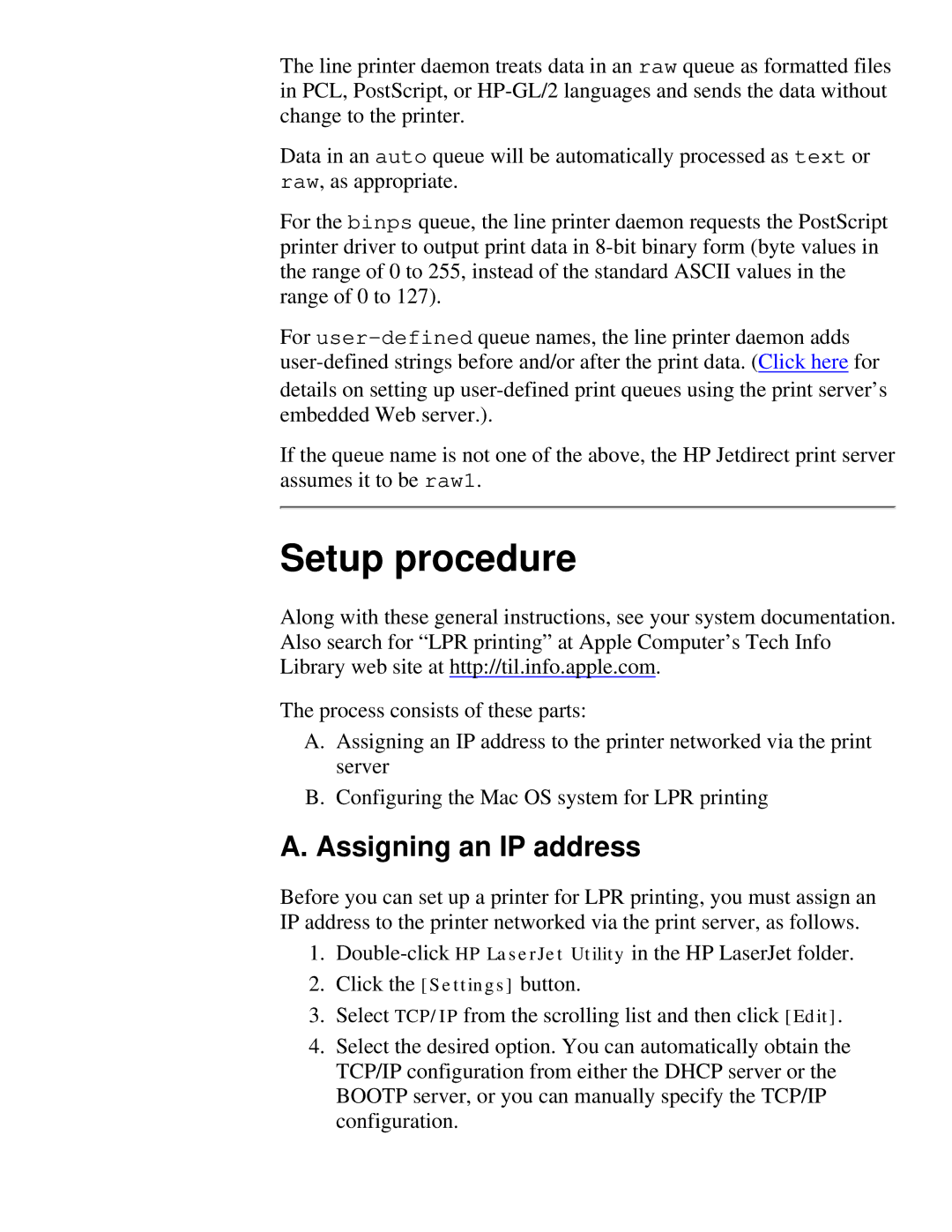
The line printer daemon treats data in an raw queue as formatted files in PCL, PostScript, or
Data in an auto queue will be automatically processed as text or raw, as appropriate.
For the binps queue, the line printer daemon requests the PostScript printer driver to output print data in
For
If the queue name is not one of the above, the HP Jetdirect print server assumes it to be raw1.
Setup procedure
Along with these general instructions, see your system documentation. Also search for “LPR printing” at Apple Computer’s Tech Info Library web site at http://til.info.apple.com.
The process consists of these parts:
A.Assigning an IP address to the printer networked via the print server
B.Configuring the Mac OS system for LPR printing
A.Assigning an IP address
Before you can set up a printer for LPR printing, you must assign an IP address to the printer networked via the print server, as follows.
1.
2.Click the [Settings] button.
3.Select TCP/IP from the scrolling list and then click [Edit].
4.Select the desired option. You can automatically obtain the TCP/IP configuration from either the DHCP server or the BOOTP server, or you can manually specify the TCP/IP configuration.
